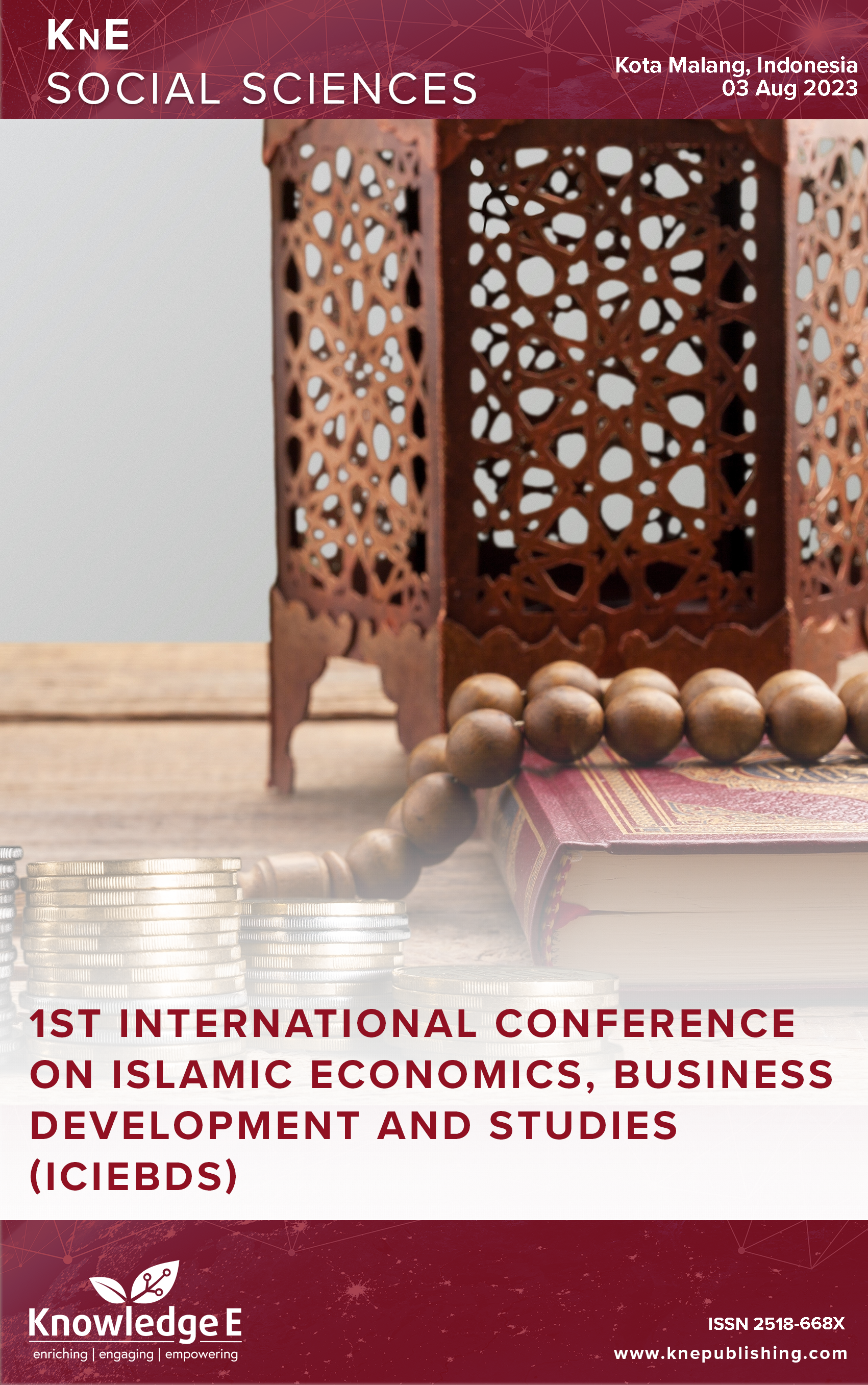Implementation of Sharia Principles in Micro Waqf Bank Financing Products at Minhadlul'ulum Islamic Boarding School (Based on the National Sharia Board Fatwa of the Indonesian Ulema Council Number 19 of 2001)
DOI:
https://doi.org/10.18502/kss.v9i16.16247Abstract
This study was to determine the practice of financing products at the Micro Waqf Bank of the Minhadlul ’Ulum Islamic Boarding School and to determine the suitability of Sharia applied at the Micro Waqf Bank of the Minhadlul ’Ulum Islamic Boarding School. This research uses a qualitative method by conducting research directly in the field through an empirical normative approach. Sources of research data were primary and secondary data. This is descriptive research with data collection techniques such as observation, interviews, and documentation. The results showed that the financing product at the Micro Waqf Bank of the Minhadlul’Ulum Islamic Boarding School, namely the Qardh contract, is by Sharia principles and is by the provisions of DSN-MUI Fatwa No.19/DSN-MUI/IV/2001 concerning qardh. This conformity is due to the financing of the Qardh contract with a profit-sharing margin fee equivalent to 3% per year as a consulting service. The cost of consulting services for operational costs, namely transportation to KUMPI, because the system is the party from the Micro Waqf Bank who comes directly to the customers to pay the loan installments.
Keywords: Sharia principles, financing products, Micro Waqf Bank, Fatwa DSN-MUI
References
Baskara IG. Lembaga keuangan mikro di Indonesia. None; 2013. p. 44233.
B. Priyono, “BANK WAKAF MIKRO SEBAGAI JEMBATAN KESEJAHTERAAN EKONOMI MASYARAKAT INDONESIA,” J. Bus. Adm. Econ. Entrep., 2021.
Said HA. Studi Islam I Kajian Islam Kontemporer. Jakarta PT Raja Graf. Persada; 2016.
Muhammad, Manajemen Bank Syariah. 1st ed. Yogyakarta: Ekonosia; 2005.
Antonio MS. Bank Syariah Dalam Teori ke Praktik. Jakarta: Gema Insani; 2001.
UU_Perbankan, “Undang-Undang Republik Indonesia Nomor 7 Tahun 1992 Tentang Perbankan,” 1998.
Dkk ID. SOP dan SOM Standar Operasional Procedure dan Management untuk LKM Syariah-Bank Wakaf Mikro. Jakarta: Laznas BSM; 2018.
Sukma FA, Akbar RK, Azizah NN, Juliani GP. “Konsep Dan Implementasi Akad Qardhul Hasan Pada Perbankan Syariah Dan Manfaatnya,” Amwaluna J. Ekon. dan Keuang. Syariah. 2019;3(2):148–62. DOI: https://doi.org/10.29313/amwaluna.v3i2.4296
A. Soemitra, “Bank dan lembaga keuangan syariah,” 2010.
Pasal 1 ayat (1) UU No. 1 Tahun 2013 tentang Lembaga Keuangan M Ikro.
Bab IV Pasal 12 UU No. 1 Tahun 2013 tentang Lembaga Keuangan M ikro.
Arifin M. “Manajemen Pemberdayaan Ekonomi Masyarakat Berbasis Bank Wakaf Mikro: Ekplanatory Study,” FeakonomicS J. Islam. Econ. Financ. 2020;1(02).
Attamimi ZF, Disemadi HS, Santoso B. Prinsip Syariah dalam penyelenggaraan bank wakaf mikro sebagai perlindungan hak spiritual nasabah. J. Jurisprud. 2019;9(2):117– 32. DOI: https://doi.org/10.23917/jjr.v9i2.8897
S. I. Ketut, “Pengenalan Bahan Hukum (PBH),” Udayana Univ. State Adm. Law, 2017.
Sugiono, Metode Penelitian Pendidikan (Pendekatan Kuantitatif, Kualitatif, dan R&D). Bandung: Alfabeta; 2014.

